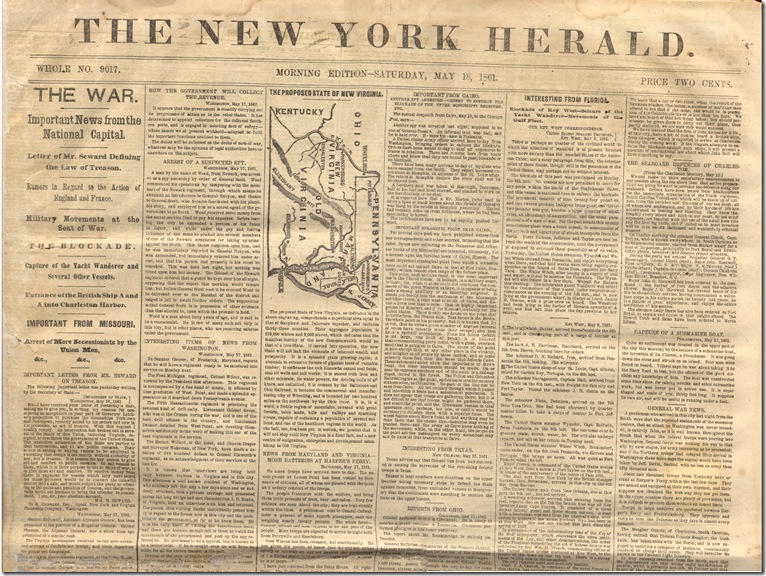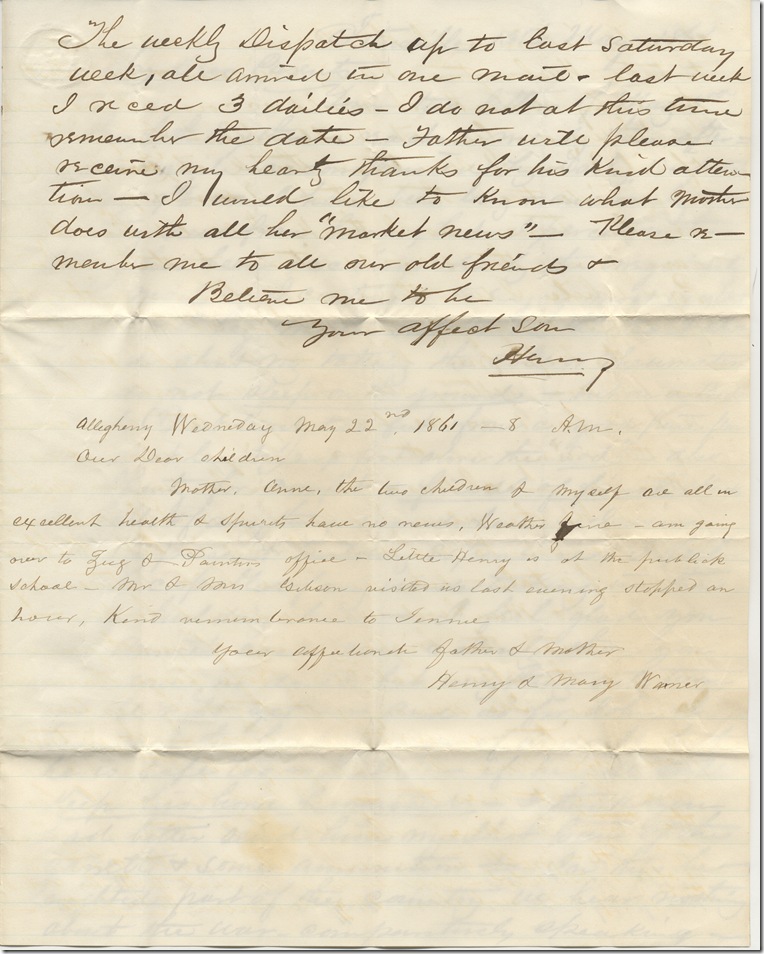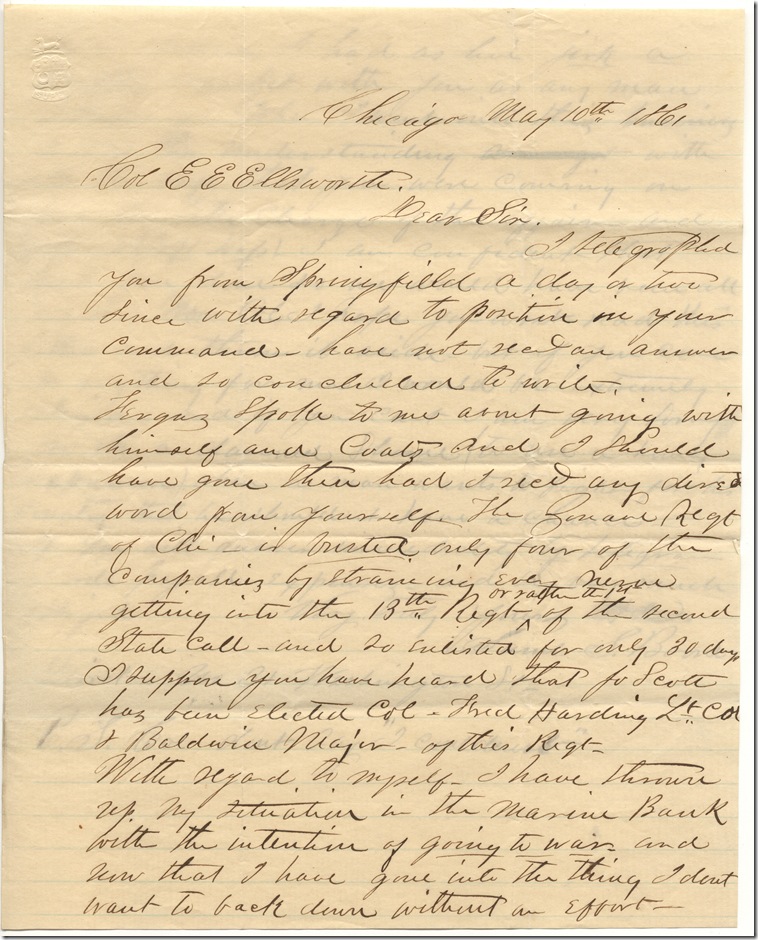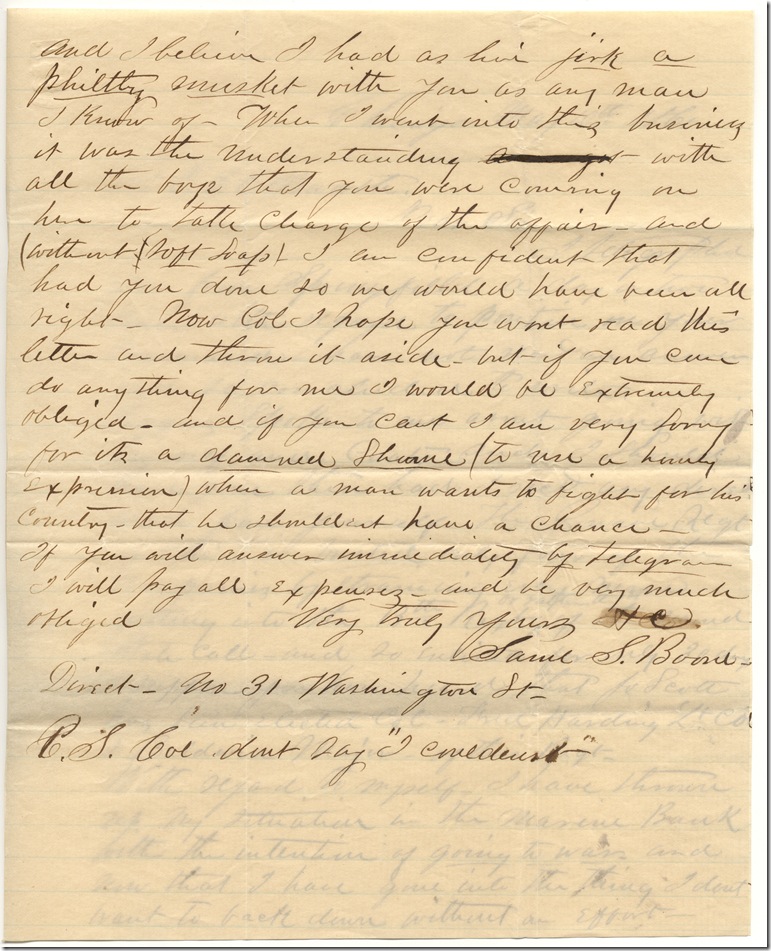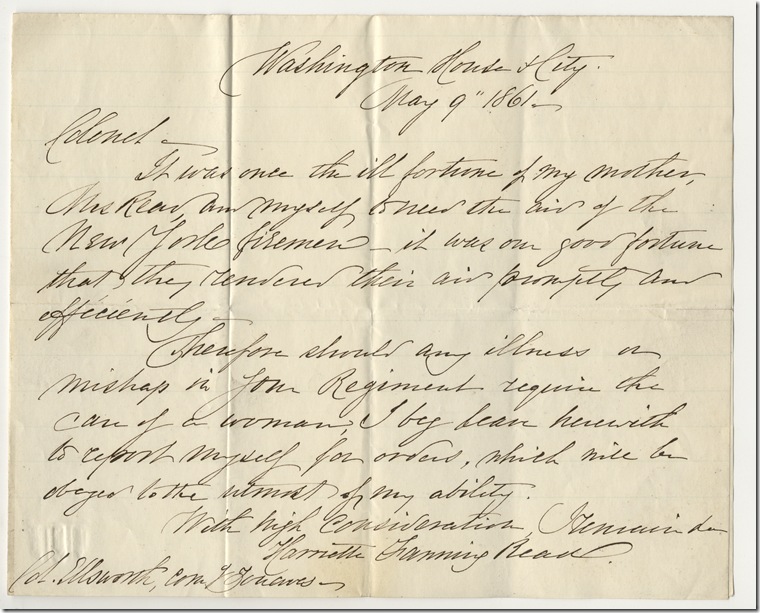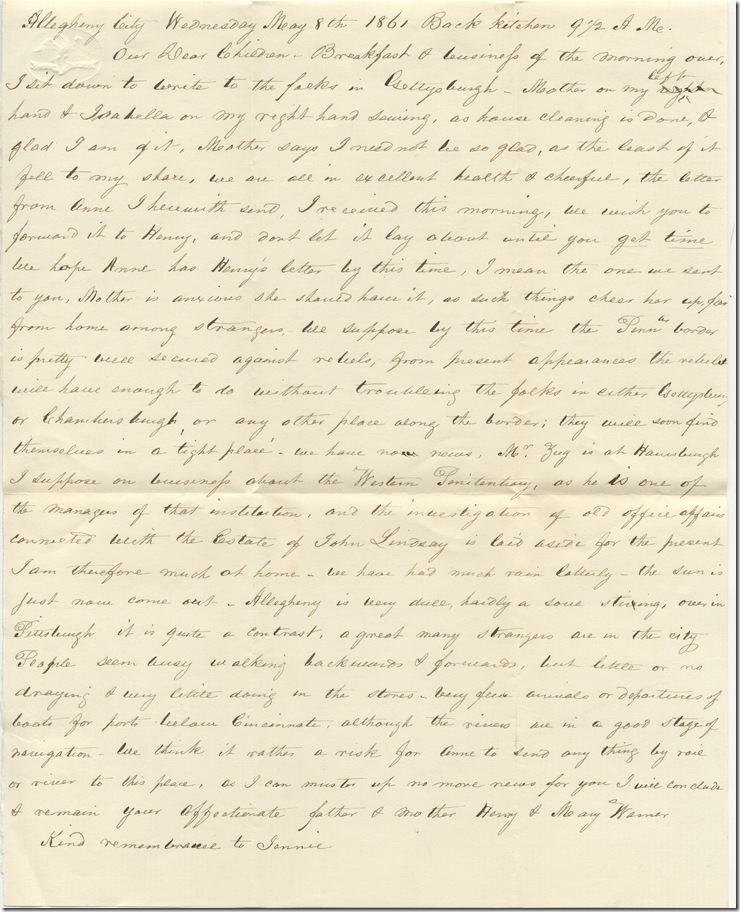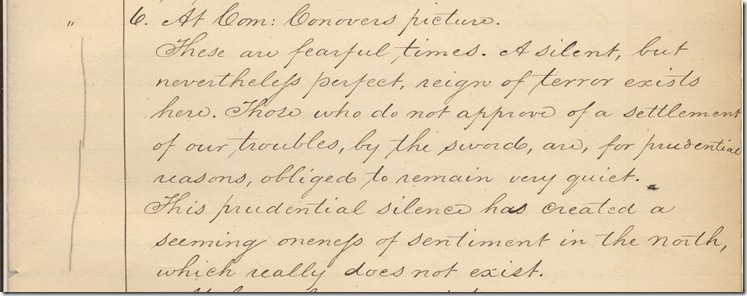
Transcript (excerpt):
What the Negroes are Thinking About
A gentleman from Virginia, in whose account the New York Times puts entire confidence, states that the negroes in that state comprehend very well the position of affairs, and are deeply interested in the war. A prevalent opinion among them is, that this war is a fulfillment of the prophecy recorded in the eleventh chapter of Daniel. They have their revolutionary and patriotic songs, which they sing in private. They hold secret religious meetings, the burthen of their prayers being that the Lord will help the North, and hasten the day of their emancipation. “A few days ago I was traveling in the interior of Virginia. Night overtook me in the neighborhood of a farm house, where I was entertained until the next day. That night I chanced to hear the evening devotions of the slaves in one of their huts. I was an unobserved spectator. I heard them pray for the success of the North, and one old woman wept for joy when told that the northern armies were soon coming to set them free. ‘Oh good massa Jesus,’ said she, ‘let the time be short.’ During this time they heard the clang of arms in their master’s house, for two of his sons were members of a troop of horse, ready to start in the morning for Richmond, and were practicing with the broadswords. To their masters, the slave pretend entire ignorance of this whole movement, but to white men in whom they confide, they reveal their hopes, fears, desires and plans. They have no arms, and could not use them if they had, but they have other means of destruction more potent and fearful, which no power can prevent their using. When the time comes for them to act, they will know no love stronger than the love of liberty.”
Useful Hints for Volunteers.
The governor has ordered the publication of the following important sanitary riles. Prepared by Dr Ware of Boston, which will be communicated to the Massachusetts troops in active service:-
Soldiers should recollect that in a campaign where one dies in battle, from three to five die from disease. You should be on your guard, therefore, more against this than the enemy, and you can do more for yourselves which nobody can do for you.
1. Avoid especially all use of ardent spirits. If you will take them-take them rather after fatigue than before. But tea and coffee are much better. Those who use ardent spirits are always the first to be sick and the most likely to die.
2. Avoid drinking freely if very cold water, especially when hot of fatigued., or directly after meals. Water quenches thirst better when not very cold and sipped in moderate quantities slowly- though less agreeable. At meals, tea, coffee and chocolate are best. Between meals, the less the better. The safest drink in hot weather is molasses and water with ginger or small beer.
3. Avoid all excesses and irregularities in eating and drinking. Eat sparingly of salt and smoked meats, and make it up by more vegetables, as squash potatoes, peas, rice, hominy, Indian meal , &c, when you can get them. Eat little between when you can get plenty of meals.
4. Wear flannel all over in all weathers. Have it washed often when you can-when not, have it hung up in the sun. Take every opportunity to do the same by all of your clothing and keep everything on your person dry, especially when it is cold.
5. Do not sit, and especially do not sleep upon the ground, even in hot weather. Spread your blanket upon hay, straw, shavings, brush-wood, or anything of the kind. If you sleep in the day, have some extra covering for you.
6. Sleep as much as you can and whenever you can. It is better to sleep too warm than too cold.
7. Recollect that cold and dampness are great breeders of disease. Have a fire to sit around in the evening and after rain, and take care to dry everything in and about your persons and tents.
8. Take every opportunity of washing the whole body with soap and water. Rub well afterwards. If you bathe, remain in the water but a little while.
9. If disease begins to prevail, wear a wide bandage of flannel around the bowels.
10. Keep in the open air, but not directly exposed to a hot sun. When obliged to do this, a thin, light, white covering over the head and neck in the form of a cap with a cape, is a good protection.
11. Wear shoes with very thick soles and keep them dry. When on the march, rubbing the feet after washing with oil, fat or tallow, protects from foot sores.
Citation:Springfield Republican. Springfield, Mass; 17 May 1861. Gift of Steven and Susan Raab. AN .S769
